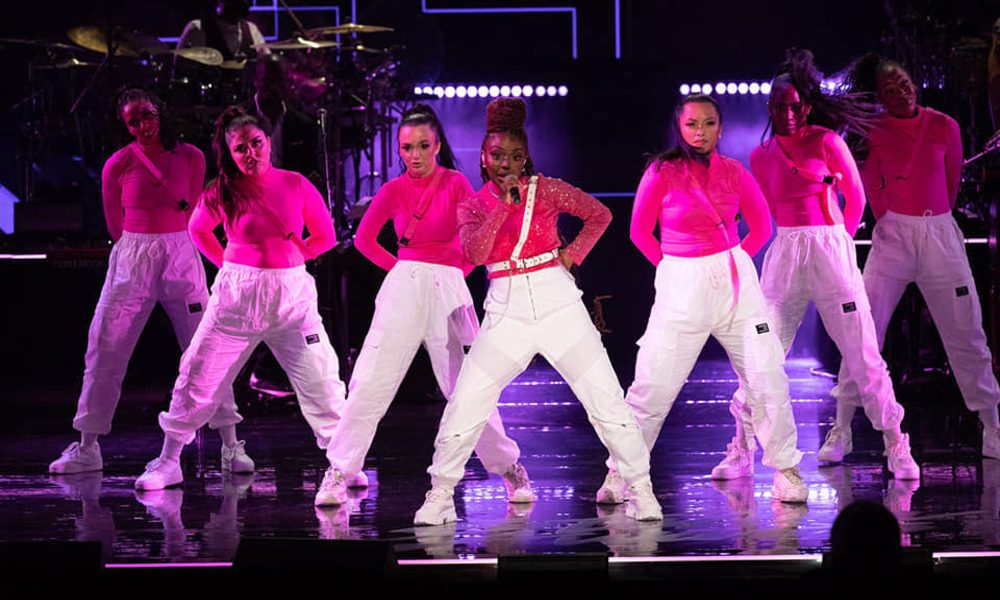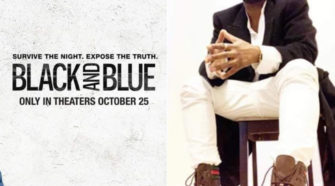The Stellar Awards are a celebration of Gospel Music’s biggest figures and overall a cultural event that highlights mostly Black excellence in music. Over the years, gospel has had a somewhat friendly but not completely accepting relationship with Christian hip-hop.
This came to head recently when gospel veteran Earnest Pugh shared his thoughts about what he deemed “industry over ministry” with what he felt was an over-inclusion of CHH and underrepresentation of gospel music at the Stellars.
Here are his own words (unedited):
A Moment of Transparency—BTW – My platform & My View:
Well!!! If there was ever a time to pivot from INDUSTRY to MINISTRY that moment is here for me. The Gospel Hip Hop Awards formerly known as The Stellar Awards have given us a clear indication where the focus of their platform and its audience lies. They have sent a clear message to those of us who have been in the Gospel Music industry for 15-20 years that we are no longer needed, wanted, or welcome on their stages anymore. Perhaps the Powers-That-Be feel pressured by sponsors and advertisers to adorn the gospel with “an element of entertainment” but whatever the case, the writing is on the wall and do not plan to sit around and await my demise. Please understand, as a “creative” I will forever create music and release it into the earth and affect the flow of worship because, by no means, can these systems of the world stop destiny and purpose. It’s simply time to differentiate between INDUSTRY and MINISTRY. I promise to keep the main thing the main thing—which is to advance the Kingdom of God not agendas that are rooted in idolatry and greed (viewership ratings). My heart goes out to all the forerunners who are being silenced on various platforms in which they contributed time, energy, and resources for decades. Sadly, its the end of an era and the beginning of a movement. Those of us who are wise…MAJOR in Ministry and MINOR in Industry. It’s all good…and its all GOD.
It’s an interesting thought because for many years CHH has been looked down upon and kicked out of spaces for being different. Many rappers have gospel backgrounds, and many gospel artists have no problems grabbing features from rappers. A grand example of this is Kirk Franklin, who collabs more with secular artists than Christian ones. And that’s not a shot, by the way, he’s moving how he feels God is leading him. He’s known in non-Christian circles, and that’s encouraging.
If you recall the many stories of CHH pioneers losing out on Dove Awards, Grammys, and the like to gospel artists who may have subtly had some rap on one song, they were justifiably upset, but that’s how things went. Music has greatly progressed since then, but even still, with the strides, Christian Rap has made, the Dove Awards recognize a few artists.
The majority of CHH fans are young and white just like mainstream hip-hop. Many black artists see a sea of young white teens from the stage. There is nothing wrong with this, but a night of celebrating black culture should be a welcome reprieve for Christian hip-hop. They can have the representation among their peers that is normally missing, but even that is soured.
Christian rap spent years demonized as Devil music just like rock was in the 60s and 70s. Once that became okay, hip-hop was a new evil infecting young people. It was too racy for CCM, not allowed to mingle with gospel, but edgy enough to be packaged with rock bands. This is why you saw rock tours with openers like KJ-52, John Reuben, and many others.
But even before that, rap music was only being accepted thanks to the efforts of DC Talk who were a mixed-race group, but the rapper was white, he went to Liberty, and he smiled a lot. The evangelical community ate it up. DC Talk performed at Billy Graham Crusades with Michael W. Smith. For everything Lecrae has accomplished, it’s hard to see that one happening. And that’s not a shot either.
With the doorway to CHH now cracked open to a wide audience, you would think that the gospel music-infused roots of black Christian rappers would be able to shine through in meaningful ways, but there still seems to be a disconnect. It’s unfortunate that some in gospel music feel threatened by the most culturally relevant thing in the world – hip-hop. In fact, in 2014, Billboard blocked hip-hop from appearing on gospel charts. It sounds a lot like when Country music’s outcry of Lil Nas X’s “Old Town Road” being barred from country charts. When something disrupts the established systems, rules get revised to keep the “sanctity” of the original intact.
From our 2014 article talking about CHH not being eligible for gospel charts:
It is understandable that traditional gospel music artists want a place of their own to be recognized and not encroached on by Christian hip hop. The issue here is that many gospel artists with elements of hip hop in their music will still be able to appear on the rap charts, while Christian “rappers” with similar sounds are eliminated from the gospel charts.
The other issue is that “Christian” and “gospel” are not musical genres, but rather labels that let a consumer know that the content in the lyrics is Christian-based.
Hip-hop controls fashion, TV, lingo, shifts in genre, and on and on. One of the most famous people in the entire world is Kanye West, a rapper, who now makes his own version of gospel music.
Shout out to Aaron Cole, Wande, and Erica Mason who performed relevant music for Christian culture. Shout out to indie tribe. for the nomination, and 1K Phew for the win. For all the comments agreeing with Pugh, there’s a bunch on the other side calling him “boomer” or “he doesn’t get it.” He’s entitled to feel the way he does, but this is music – constantly evolving and changing.
Yo @IAmAaronColee… 🔥 performance! 🙏 https://t.co/eE6MiAW6bg
— Andrew Bishop (@andrewbishup) August 8, 2022
But perhaps this “coolness” of “industry over ministry” that he felt the Stellars moved toward would feel a little better if he didn’t make his clarification videos in front of a litany of awards from Billboard and four Stellar Awards…They’ve seemingly been very good to him in the past. He’s a legend, is his legacy actually in danger of being forgotten?
Gospel music often laments about what God has done and celebrates His work, but hip-hop generally tells us the story of how we got there. If I don’t know God, I can’t praise him, therefore, Gospel music might not touch my spirit in the way someone’s verse in a rap song could.
Gospel music might be a sound, but if the gospel is in music, it’s sound…amiright?
There is where ministry mimics the industry but reaches who it’s supposed to. CCM, Gospel, and CHH should all be working together, not segregated based on “genre.”
To quote 1K Phew, “Gospel rap is back.”
3,728 total views, 0 views today














